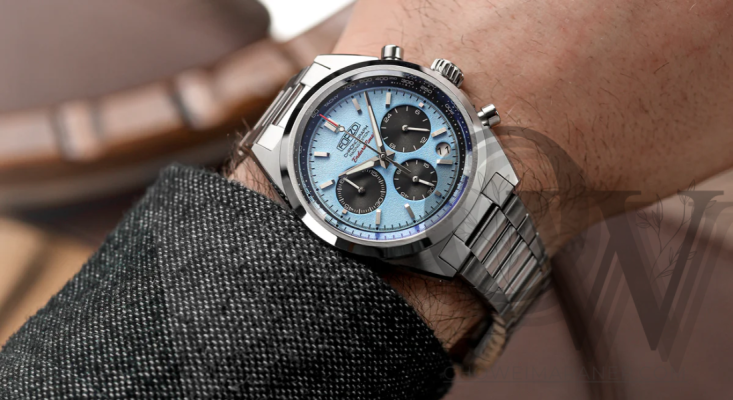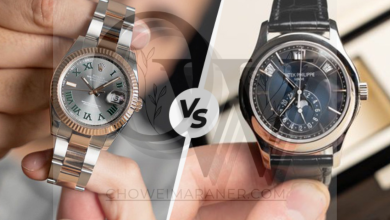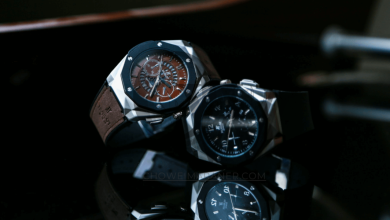Understanding the Mechanics Behind the Most Complex Watch Complications

Luxury watches are renowned not just for their timeless elegance but also for their intricate mechanisms, known as watch complications. A complication refers to any function a watch performs beyond simple timekeeping. While some complications, like the date display, are relatively straightforward, others are marvels of engineering and artistry. Understanding the mechanics behind the most complex watch complications offers a glimpse into the pinnacle of horological craftsmanship.
This article explores the intricate mechanics of the most complex watch complications, diving into how they work, their significance, and why they are celebrated in the world of haute horology.
What Are Watch Complications
A watch complication is any additional feature a watch performs aside from displaying the hours, minutes, and seconds. Complications can range from practical functions, such as a calendar, to highly sophisticated ones, like a tourbillon or a perpetual calendar.
Common Types of Watch Complications
- Chronograph: A stopwatch function integrated into the watch.
- Moon Phase: Displays the lunar cycle on the dial.
- GMT Function: Shows time in multiple time zones.
- Perpetual Calendar: Accounts for leap years and irregular months.
- Minute Repeater: Chimes the time audibly.
Exploring the Most Complex Watch Complications
The most complex watch complications are feats of micro-engineering that require exceptional skill and precision. Here’s a closer look at some of the most fascinating complications and their mechanics.
Tourbillon: Defying Gravity
The tourbillon is one of the most iconic watch complications, designed to counteract the effects of gravity on a watch’s accuracy. Invented by Abraham-Louis Breguet in 1801, the tourbillon places the escapement and balance wheel inside a rotating cage, ensuring consistent timekeeping regardless of the watch’s position.
- How It Works: The tourbillon cage rotates once per minute, equalizing positional errors caused by gravity.
- Why It’s Celebrated: A symbol of technical prowess and craftsmanship.
- Example: The Breguet Classique Tourbillon features a stunning open-heart display of the mechanism.
Minute Repeater: The Art of Sound
The minute repeater is a complication that audibly chimes the time on demand. It uses a series of gongs and hammers to produce different tones for hours, quarter-hours, and minutes.
- How It Works: When a lever is activated, the movement’s mechanism strikes the gongs in sequence, indicating the current time.
- Why It’s Celebrated: Combines technical complexity with artistic sound design.
- Example: The Patek Philippe Grand Complications Minute Repeater showcases exceptional acoustic clarity.
Perpetual Calendar: The Eternal Timekeeper
The perpetual calendar is a highly complex complication that automatically adjusts for the varying lengths of months and leap years. It can track the date accurately for decades without manual correction.
- How It Works: A series of cams, levers, and gears calculate the number of days in each month and account for leap years.
- Why It’s Celebrated: Requires intricate engineering to maintain long-term accuracy.
- Example: The Audemars Piguet Royal Oak Perpetual Calendar displays the date, day, month, and moon phase.
Split-Seconds Chronograph: Precision Timing
The split-seconds chronograph, also known as a rattrapante, allows the user to time multiple events simultaneously. This complication features an additional seconds hand that can be stopped independently of the main chronograph hand.
- How It Works: A second chronograph hand splits from the main hand, controlled by a complex mechanism of clamps and levers.
- Why It’s Celebrated: Showcases precision and versatility in timekeeping.
- Example: The IWC Portugieser Chronograph Rattrapante is a masterpiece of dual-timing functionality.
Grande Sonnerie: The Ultimate Chiming Watch
The grande sonnerie is one of the most intricate complications, combining a minute repeater with an automatic chime function that strikes the hours and quarters.
- How It Works: Features a barrel-driven system that powers both the timekeeping and chiming functions.
- Why It’s Celebrated: Represents the pinnacle of acoustic and mechanical complexity.
- Example: The Vacheron Constantin Les Cabinotiers Grande Sonnerie.
Gyrotourbillon: The Multi-Axis Marvel
The gyrotourbillon takes the concept of the tourbillon to the next level by incorporating multiple axes of rotation. This ensures even greater precision by negating gravitational effects in all positions.
- How It Works: The escapement rotates on two or more axes, creating a mesmerizing visual display.
- Why It’s Celebrated: A demonstration of technical innovation and artistry.
- Example: The Jaeger-LeCoultre Gyrotourbillon is a marvel of modern watchmaking.
Equation of Time: Celestial Precision
The equation of time complication calculates the difference between solar time (based on the sun’s position) and standard time. This difference varies throughout the year due to Earth’s elliptical orbit.
- How It Works: Uses a cam shaped like a figure-eight to represent the solar equation, displaying the difference on a sub-dial.
- Why It’s Celebrated: Combines astronomy with mechanical ingenuity.
- Example: The Blancpain Villeret Equation of Time.
Astronomical Complications: Mapping the Skies
Astronomical complications include features like star charts, celestial maps, and moon phases. These timepieces often integrate multiple celestial functions into a single watch.
- How It Works: Uses precise gearing to simulate celestial movements and display them on the dial.
- Why It’s Celebrated: Appeals to lovers of both astronomy and horology.
- Example: The Van Cleef & Arpels Midnight Planétarium showcases a rotating solar system on the dial.
The Challenges of Creating Complex Complications
Crafting these intricate mechanisms is no small feat. Each complication involves thousands of components, assembled with microscopic precision. Here are some of the challenges watchmakers face:
- Miniaturization: Designing tiny components that fit seamlessly within the watch case.
- Durability: Ensuring long-term reliability despite the complexity of the mechanisms.
- Aesthetic Integration: Balancing functionality with visual appeal.
- Energy Efficiency: Creating mechanisms that operate without draining the watch’s power reserve.
Why Complex Complications Are Celebrated
Complex complications are not just functional—they are a testament to human ingenuity and artistry. They push the boundaries of what is possible in mechanical engineering while preserving the traditions of horology.
Key Reasons for Their Appeal
- Showcases Expertise: Reflects the watchmaker’s skill and innovation.
- Exclusive Craftsmanship: Often limited edition, making them highly coveted.
- Investment Value: Retain or appreciate in value over time.
- Aesthetic Beauty: Combine technical complexity with artistic design.
Choosing a Watch with Complex Complications
When investing in a watch with complex complications, consider the following:
- Purpose: Decide which complication suits your lifestyle or interests.
- Brand Reputation: Choose reputable brands known for their craftsmanship.
- Maintenance: Be prepared for higher maintenance costs due to the complexity.
- Aesthetic Preference: Ensure the design aligns with your personal style.
Conclusion
Understanding the mechanics behind the most complex watch complications opens a window into the world of horological excellence. These intricate mechanisms showcase the brilliance of watchmaking, blending tradition, innovation, and artistry. Whether you admire the precision of a tourbillon or the celestial charm of an astronomical complication, these watches represent the pinnacle of luxury and craftsmanship.
Investing in a watch with complex complications is not just about owning a timepiece—it’s about celebrating the ingenuity and passion that define the art of horology. Explore the fascinating world of complications today and discover the extraordinary blend of mechanics and beauty they offer.







